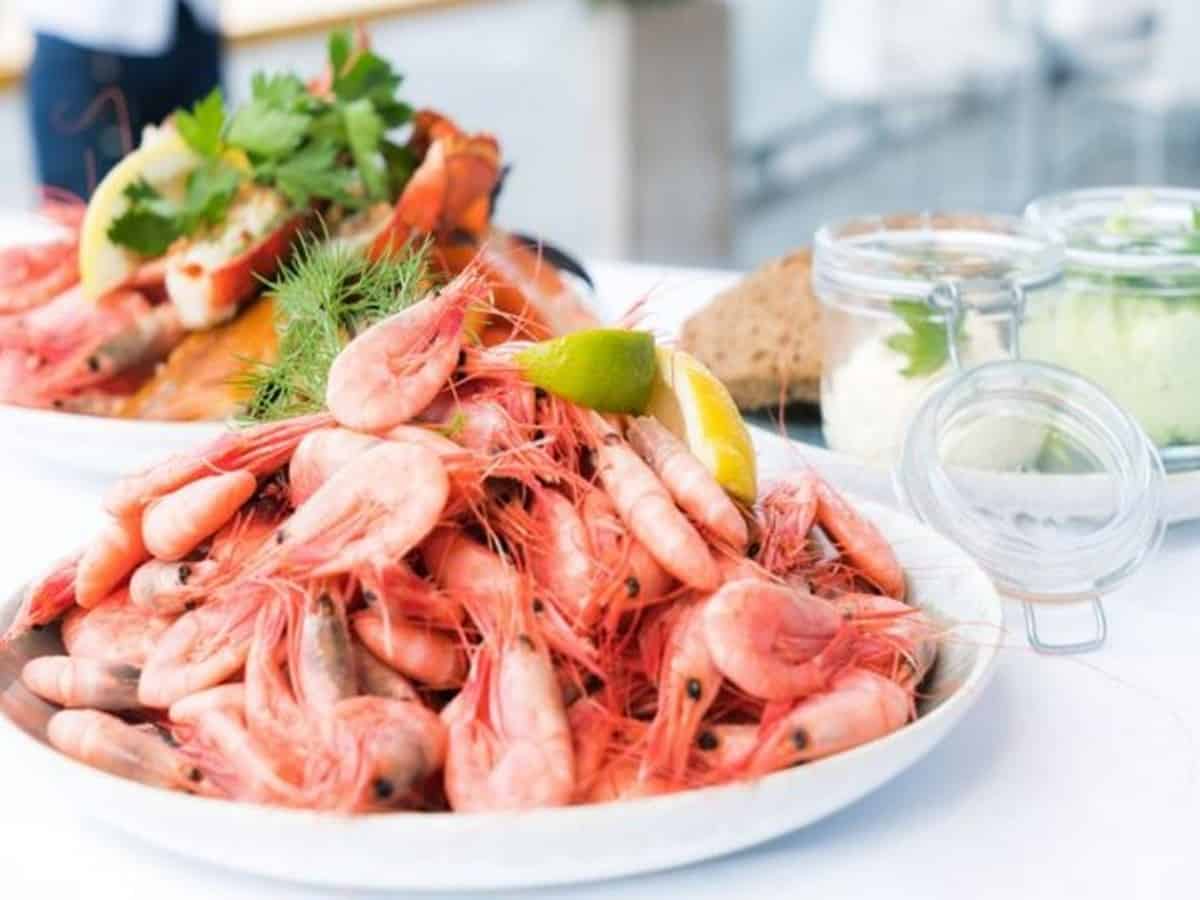
Amaravati: Despite being blessed with a coastline of nearly 1,000 km, where fishing is allowed up to 200 nautical miles within the exclusive economic zone (EEC), Andhra Pradesh lacks a reliable and robust domestic market for fish, shrimp and aquaculture products and the government has now come up with a multi-pronged marketing strategy to address the issue.
It includes organising periodical seafood festivals as well as opening up of branded retail outlets.
V V Rao, joint director, fisheries department, said the lack of domestic market subjects entrepreneurs, who spend a fortune in terms of money and time on aquaculture, especially shrimp to the phenomenon of “buyer’s market”.
This is where the fisheries department hopes that the food festivals, which they are organising with Bhoomi Organics, will play a role in popularising seafood, unearthing demand and connecting entrepreneurs.
“This year we got 5.75 lakh tonnes of marine fish. We have natural water bodies of 4.75 lakh hectares in the form of reservoirs, lakes and ponds where 10 lakh tonnes of fish is available,” Rao told PTI.
Further, up to 20 lakh tonnes of shrimp are cultured, resulting in a total production of 52 lakhs tonnes of fish, shrimp and aquaculture products per annum from all sources.
He observed that the lion’s share of shrimp– about15 lakh tonnes is exported while only a mere three to four lakh tonnes are consumed locally. He noted that if we do not increase consumption internally, aquaculture entrepreneurs will suffer at the hands of processors and buyers.
At a time when a kilo of mutton costs around Rs 1,000 and many people are avoiding chicken for various reasons, Rao said nutrient-rich seafood, which is natural, is an excellent alternative.
He said nobody feeds the fish thriving in natural water bodies, calling them completely natural, healthy and also affordable, as they are available for as low as Rs 50.
Raghuram from Bhoomi Organics said the term ‘organic food’ is not restricted to groceries or plant-based foods alone, but also extends to any product that is chemical-free.
He said the fish available in the sea and natural water bodies are organic as they rely on the natural food chain, beginning with plankton and other aquatic organisms.
“Nowadays, chicken and milk are highly induced with hormones. These are causing hormonal imbalances, polycystic ovarian disease (PCOD) and several other health issues. All these issues are getting into the society and the next generation is getting impacted,” said Raghuram.
K Kanna Babu, fisheries commissioner, said as many as 4,000 food enthusiasts relished unlimited seafood buffets at Rs 699 per head at the recently concluded three-day food festival at Vijayawada, where up to 10,000 footfalls were recorded.
Besides regular seafood festivals at several locations in the state such as Visakhapatnam, Rajamahendravaram, Nellore, Kurnool and others, Babu said hundreds of Fish Andhra’ retail outlets are being set up throughout the state under a hub and spoke model.
Out of 26 hubs, 15 are under construction while three are operational now whereas retail outlets will be raised up to 4,000 by March from the existing 2,000.
Besides offering the option of ordering online, seafood will be made available in live and packed format while attractive subsidy schemes of up to 75 percent, training and handholding are available for entrepreneurs to establish outlets.
Despite these measures, Babu said a lot still needs to be done. According to him, though non-vegetarian food is highly popular in AP, average seafood consumption per person per annum is less than 8 kg, indicating an untapped domestic market.
Babu observed that entrepreneurs cannot be left to the vagaries of international markets.
“Exports are not good now because of global economic gloom, mainly in the US and to some extent in China. These are two big places where we export our aquaculture products,” he said.
The commissioner said these markets are ordering less and reducing prices, directly impacting aquaculture entrepreneurs.
He cited the emulative example of South American giant Brazil. According to him, Brazil used to export a majority of the shrimp it produced, but has now improved its domestic market to such an extent that it need not export.
Stating that though 75 percent shrimp in India is cultured in the southern state, Babu noted that only less than 5 percent is being utilised in AP, calling for a Brazil-like development.
Kona Joseph, a veteran aquaculture entrepreneur, consultant and editor of AquaTech magazine from Yelurupadu village in West Godavari district called on the state and Central governments to promote fish consumption similar to how the National Egg Coordination Committee (NECC) promoted eggs.



